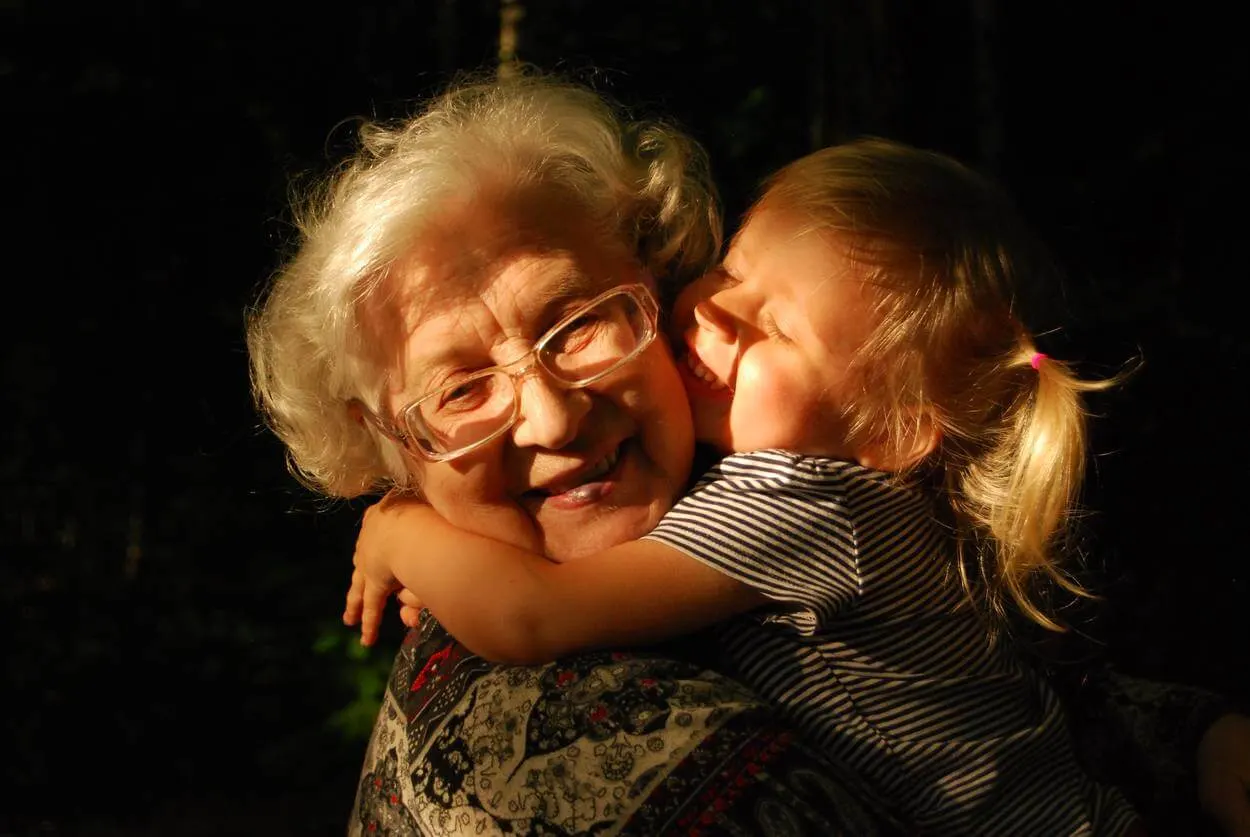You might know “Abuela” is a Spanish term for the word grandmother, and “Abuelita” means little grandmother. This is actually a popular term known by many globally. I think Spanish colonization is the main factor. Besides, many countries speak Spanish.
Now they both do sound very similar and perhaps mean the same thing. However, they have only a slight difference. If you’re new to Spanish and trying to learn the language, this might be a little confusing to understand. I’ll help you discover the difference in using them in the proper context.
Let’s get into the details.
What is Abuela?
As mentioned, Abuela is a Spanish word for grandmother. And I’m sure you must’ve heard this term at least once in your life before. If you watched the Disney Movie entitled “Encanto,” one of the main characters is Abuela Madrigal.
This family is exceptionally respected due to their magical abilities. It’s only fitting for Alma to be called Abuela because it is a more formal term, thus showing more respect in Spanish.
Here’s a video explaining how to say grandmother in Spanish and how to pronounce Abuela:
What is Abuelita?
Another term for Abuela is Abuelita. This Spanish word also means grandmother; however, it’s more colloquial and somewhat slang.
In Latin American Spanish, using Abuelita is a more endearing way to call one’s grandmother. But this doesn’t mean you don’t mean you have less respect for someone you would call Abuelita.
It’s just that you can use the word Abuelita to denote more affection. For instance, you could often use it to refer to a grandmother you love so much that you call her by a cute nickname such as Abuelita.
Abuelita is basically a diminutive form of Abuela. Spanish speakers love to use diminutive terms as they add sweetness and a gentle touch to the title.
Since grandparents usually speak to children in diminutives, it is often used.
What is the Similiraty of Abuela and Abuelita?
Aside from the obvious fact they both mean grandmother, using either Abuela or Abuelita is regarded as a term of endearment.
Endearment is a way of speaking to or about someone in a manner that shows affection, warmth, and fondness. All languages have specific words dedicated to expressing endearment.
When learning any language, it is essential to become familiar with different terms of endearment used.
In Spanish, two words express endearment: Carino and amor. Carino is the more general term for someone you love and care for. At the same time, amor is specifically used to express romantic love.
These terms of endearment can depend on factors such as age, gender, and relationship to the person being referred to.
It makes sense why Spanish people usually use Abuela and Abuelita to refer to their grandmothers. Nonetheless, you can use these words to refer to any grandmother, regardless of nationality. Both the terms show respect and love and make a grandmother feel special.

It’s essential to use the terms of endearment appropriately. While these two are good terms, you can’t just pick any term to call your grandmother.
Abuela and Abuelita Major Difference
There are two schools of thought regarding the difference between the two words.
One claims that people use “Abuela” when talking about or referring to their grandmothers. While ” Abuelita” is often used when talking to or about someone else’s grandmother more affectionately.
They feel nothing wrong in using either of the terms, even for their grandmother.
On the other hand, the second school of thought is a bit more extreme, if not the complete opposite!
Here people claim that “Abuela” is an offensive term and therefore is very insulting if one uses it to refer to their grandmother. A few Spanish people claim that their grandmothers would’ve felt highly disrespected if they had called them “Abuela” instead of Abuelita.
This is because Abuela is considered a “cold” and harsh term that shows no connection or feeling. According to people with this belief, it is a very impersonal and technical term.
Abuelita, however, has more love and respect behind it. Therefore, people believe that Abuelita is just a sweeter term for grandmother and shows more closeness than Abuela. However, it has negative comments too. According to some, adding “-ita” is a little diminutive and is also used to indicate spite.
Nevertheless, I think it would still depend on your grandmother’s preference. Who knows? Might she feel more affection for Abuela than for Abuelita or vice versa? It really differs.
Abuela and Abuelita Examples
The term “Abuelita” is common for children who refer to their grandmothers as those who gave them love and protection in childhood. However, it continued even after childhood as a symbol of appreciation.
On the other hand, “Abuela” is used more for formal settings and presents a more assertive tone of respect at the same time. This could start from childhood to adulthood as well.
Here’s a list with a few examples of sentences using Abuela and Abuelita. You’ll notice that using Abuela sounds more straightforward while using Abuelita makes the sentence closer, warmer, and loving:
- Te Quiero Abuela (I love you, grandmother.)
- Te Quiero Abuelita.
- Vamos a conocer a tu Abuela. (Let’s meet your grandmother.)
- Vamos a conocer a tu Abuelita.
- Ya vuelvo Abuela. (I’ll be back, grandma.)
- Ya vuelvo Abuelita.
- Voy a llamar a mi Abuela (I’m going to call my grandmother.)
- Voy a llamar a mi Abuelita.
Is Calling Someone Abuelita Offensive?
Unfortunately, it can be. As mentioned in the second set of beliefs above, diminutive can sometimes become derogatory.
Therefore, the term “little” in front of the grandmother can be disrespectful. For example, “little” in English sometimes refers to things that aren’t supposed to be small or cute– sarcasm!
Moreover, sarcasm might come off as rude and is not much appreciated, especially by elders who want youngsters, like their grandchildren, to respect them.
Most grandmothers probably don’t mind being addressed by their grandchildren as Abuela or Abuelita. However, many might take a solid exception to be handled, especially by a stranger. You know somebody can be a little emotional for your grandmother instead.
This is why one must always be careful about how to address people!

When Should Abuelita Be Used?
Abuelita is also used for special occasions.
For instance, it’s used on the “Day of the Dea,” a holiday where people remember their family and friends whose souls departed to the afterlife. It’s also used during L s Posadas, which refers to the Christmas season in Mexico.
Abuelita is sometimes shortened to “lita” or “litta“. Other informal terms that you may use include tata and yaya. In addition, Abuelita is also used to refer to other older women, not just your grandmother, to show respect.
Frequently Used Words in Spanish (Relationship Edition)
Take a look at this list of frequently used terms in Spanish for different relationships:
| Term | Relationship |
| Abuelo or Abuelito | Grandfather |
| Bisabuela | Great Grandmothers |
| Padre | Father |
| Madre | Mother |
| Hermano | Brother |
| Hermana | Sister |
| Esposo or Marido | Husband |
| Esposa or Mujer | Wife |
| Hijo | Son |
| Hija | Daughter |
| Tia | Aunt |
| Tio | Uncle |
Now that you know some of the basic Spanish terms for family members, maybe you’d like to change how you address your family and use one of the above terms!
They do sound pretty cute, don’t they?
9 Other Ways to Say Grandma
Abuela and Abuelita seem not the only term for grandma in Spanish. If you’re looking for more options on what to call your grandmother, here’s a compiled list of different words that you could choose from:
- Abue
This term stands for “granny” and is a short version of abuela. It is one of the most popular nicknames in Spanish. Abue can also be short for abuelito which means Grandfather in Spanish. - Mami
In Latin American Countries, mami and mom are popular nicknames for grandmothers. This term is very affectionate as it titles your grandmother as a ‘mom,’ which shows much deeper love. - Nana
This is a Spanish translation for “granny”. This term isn’t quite as popular as others on the list. - Lita
“Lita” is short for Abuelita. This word was established because small children had difficulty pronouncing the entire word abuelita. Therefore, they used a shorter and sweeter version of it. - Tita
In many countries, Tita is an affectionate word associated with grandmother. Although, this meaning cannot be applied to Spain as tita is used there to refer to an “aunt”.

Final Thoughts
- “Abuela” and “Abuelita” are both Spanish terms for grandmother.
- While similar, “Abuela” is more formal, while “Abuelita” is more affectionate and colloquial.
- Both terms are considered endearing and show respect and love for grandmothers.
- Some believe that “Abuela” is colder and more impersonal. In contrast, they find “Abuelita” to be sweeter and more affectionate.
- The choice between the two terms can vary depending on personal preferences. It can also rely on the grandmother’s preferences.
- Diminutives like ‘Abuelita’ can sometimes be seen as derogatory. Using them with care is essential.
- Ultimately, what matters most is showing love and respect to your grandmother. It is true regardless of your chosen term.
- Grandmothers deserve warmth, kindness, laughter, and love, regardless of what they are called.
Other Must-Read Articles
- MISS OR MA’AM (HOW TO ADDRESS HER?)
- DIFFERENCE IN BIG, LARGE, HUGE, ENORMOUS, & GIANT
- “HOW DO YOU FEEL NOW?” VS. “HOW ARE YOU FEELING NOW?”
The web story version of this article may be previewed here.

